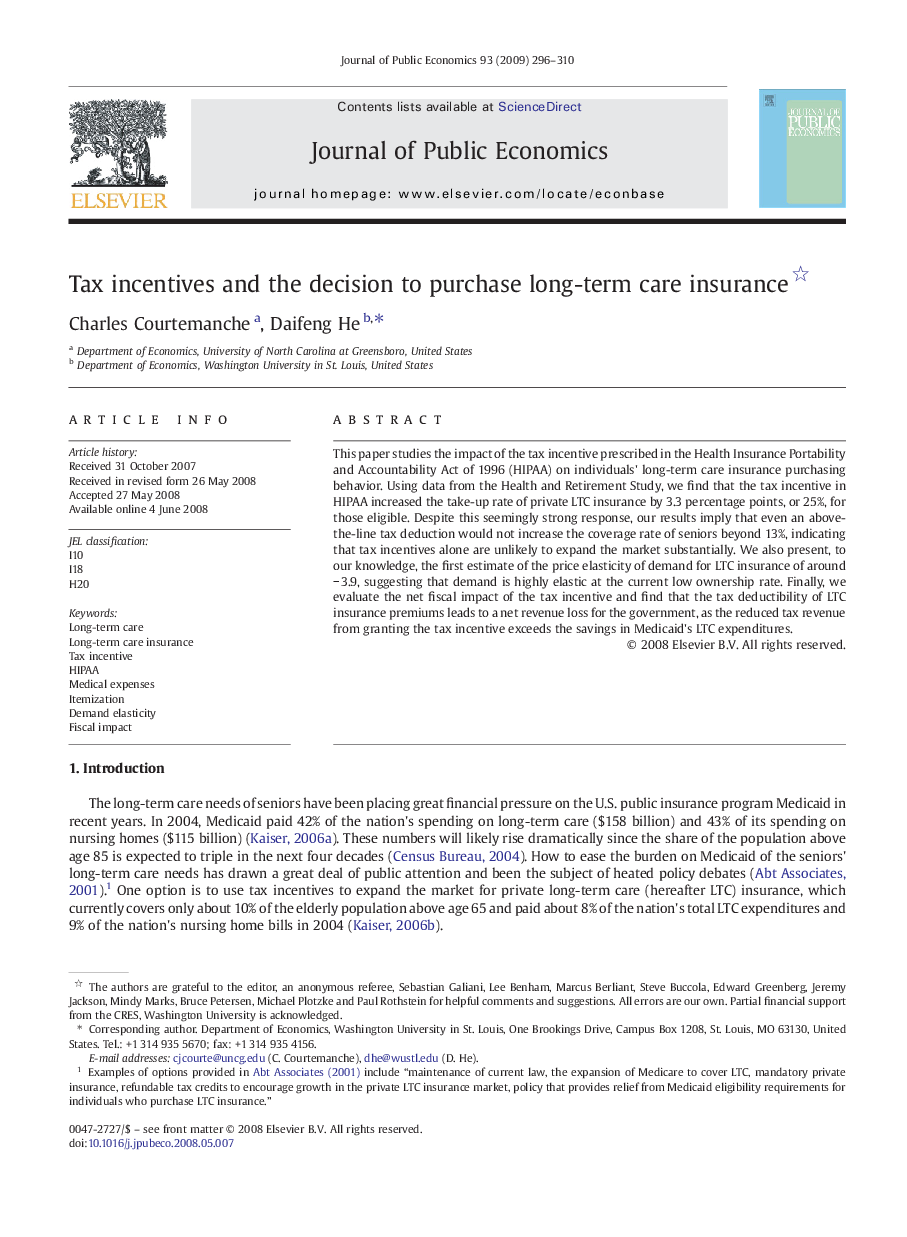| Article ID | Journal | Published Year | Pages | File Type |
|---|---|---|---|---|
| 970170 | Journal of Public Economics | 2009 | 15 Pages |
This paper studies the impact of the tax incentive prescribed in the Health Insurance Portability and Accountability Act of 1996 (HIPAA) on individuals' long-term care insurance purchasing behavior. Using data from the Health and Retirement Study, we find that the tax incentive in HIPAA increased the take-up rate of private LTC insurance by 3.3 percentage points, or 25%, for those eligible. Despite this seemingly strong response, our results imply that even an above-the-line tax deduction would not increase the coverage rate of seniors beyond 13%, indicating that tax incentives alone are unlikely to expand the market substantially. We also present, to our knowledge, the first estimate of the price elasticity of demand for LTC insurance of around − 3.9, suggesting that demand is highly elastic at the current low ownership rate. Finally, we evaluate the net fiscal impact of the tax incentive and find that the tax deductibility of LTC insurance premiums leads to a net revenue loss for the government, as the reduced tax revenue from granting the tax incentive exceeds the savings in Medicaid's LTC expenditures.
